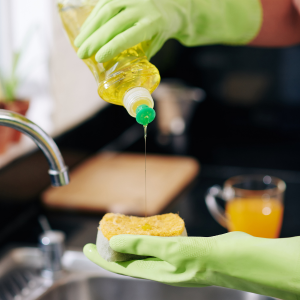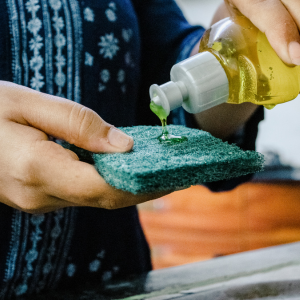Thick vs Runny Dishwashing Liquid: Which Works Best in Commercial Settings?
In busy commercial kitchens, the performance of your cleaning products can impact everything from hygiene standards to operating costs. Dishwashing detergent is no exception, and one of the key features that commercial buyers consider is consistency: thick or runny. Each has its advantages and trade-offs. Here’s what you need to know to make the best choice for your business.
Understanding Dishwashing Liquid Viscosity
Viscosity refers to how thick or thin a liquid is. In dishwashing liquids, this affects how the product dispenses, lathers, rinses, and dilutes. Thicker detergents generally have higher concentrations of active ingredients, while runnier liquids may contain more water or be designed for specific dispensers.
Pros and Cons of Thick Dishwashing Liquid
Pros:
-
Higher Concentration: Often more concentrated, requiring less product per wash.
-
Better for Manual Washing: Clings well to sponges and brushes, ideal for handwashing pots, pans, and dishware.
-
Perceived Value: Many users associate thicker products with better quality and cleaning power.
Cons:
-
Harder to Dispense in Bulk: May clog automatic dispensers or require more force to pump.
-
Potential for Overuse: Staff might use more than necessary due to habit or the illusion that more product equals better cleaning.
Pros and Cons of Runny Dishwashing Liquid
Pros:
-
Easy Dispensing: Flows well in automated dosing systems, making it ideal for high-volume kitchens.
-
Quick Rinse: Rinses away more easily, reducing water usage and time spent.
-
Better for Soaking Applications: Dilutes faster in large sinks or soaking tubs.
Cons:
-
Lower Concentration: May require more product for heavy grease or stuck-on food.
-
Perceived as Lower Quality: Thinner consistency can give the impression of being watered down.
Which is Best for Your Commercial Kitchen?
The best type of dishwashing detergent depends on how your kitchen operates. If you rely heavily on manual dishwashing, a thick detergent may offer more control and value. For high-turnover environments like cafes, catering businesses, and institutional kitchens, a runny, easily dosed detergent may improve workflow efficiency.
Many New Zealand commercial businesses find success using both types – a thick detergent for targeted cleaning and a runny version for large-scale or automated use.
Frequently Asked Questions (FAQ)
Is thick dishwashing liquid more effective?
Not necessarily. Effectiveness depends on the formulation and concentration of surfactants, not just the viscosity.
Can runny detergent still be eco-friendly?
Yes. Many runny dishwashing detergents are made with biodegradable, plant-based ingredients. Viscosity doesn’t determine environmental impact.
How can I reduce overuse of thick detergent?
Train staff to measure correct amounts or use controlled dispensing bottles to prevent unnecessary waste.
What Insinc Can Offer Your Business
Insinc offers both thick and runny commercial dishwashing detergents tailored to New Zealand business needs. Whether you're after bulk dispensing solutions or targeted manual cleaning, our eco-conscious and high-performance range has you covered.
Conclusion
Choosing between thick and runny dishwashing liquid isn't about which is better overall, but which is better for your commercial kitchen’s specific setup. With the right choice, you can improve efficiency, save on costs, and meet hygiene standards more effectively. Reach out to Insinc for tailored recommendations.
Posted: Friday 29 August 2025



